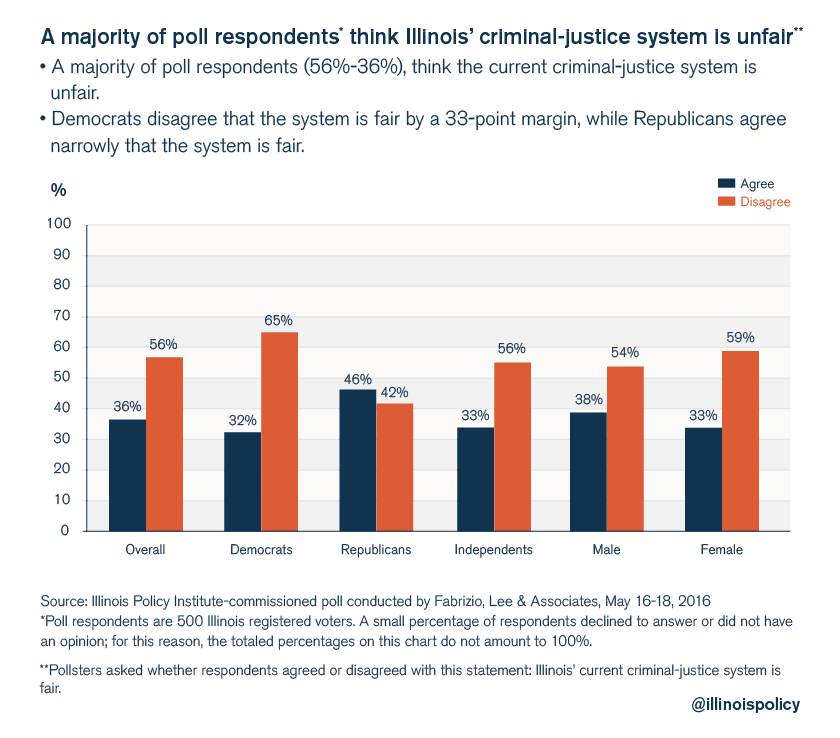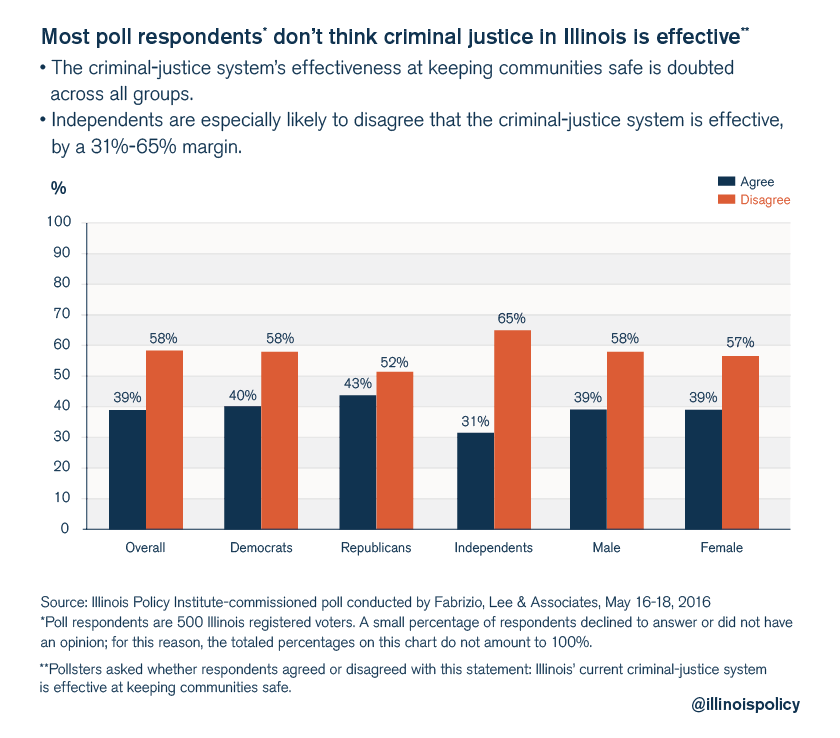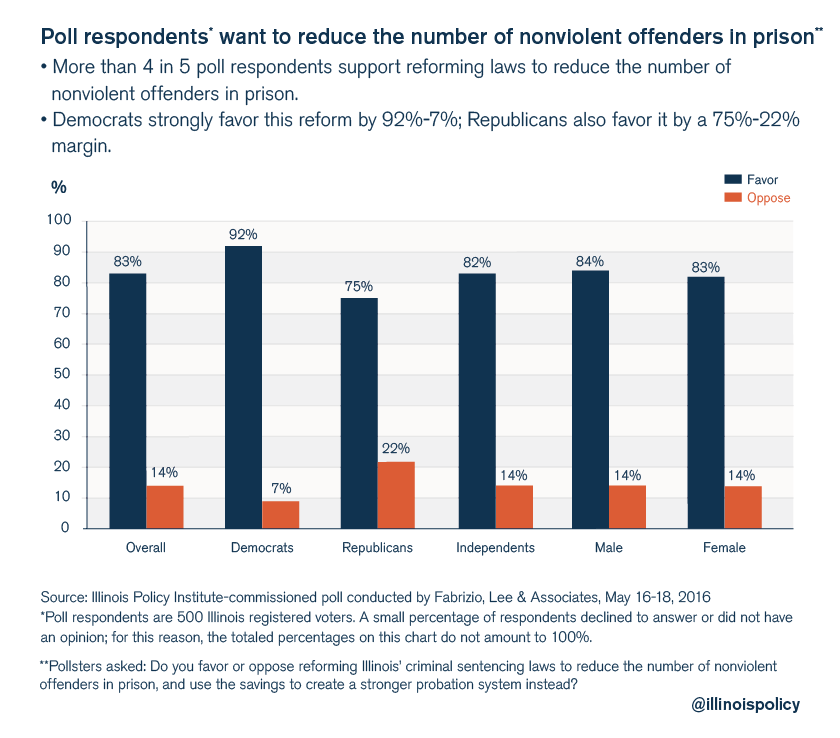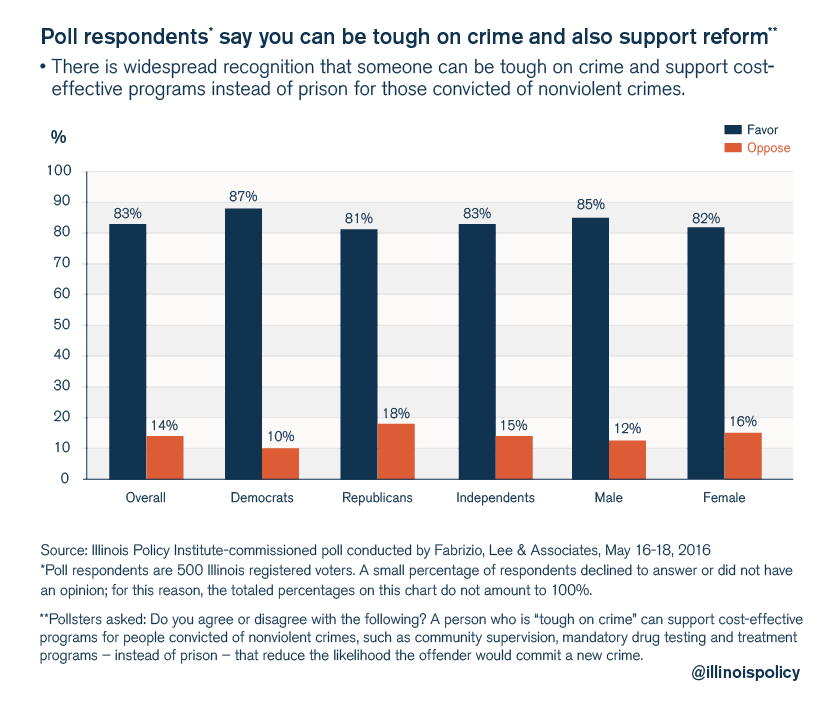Majority of Illinoisans think the state’s criminal-justice system is unfair
A new Illinois Policy Institute report discusses a recent poll showing broad concern about the fairness and effectiveness of Illinois’ criminal-justice system and strong support for reforms to improve it.
After years of prison overcrowding and nothing but bad news, Illinois is making strides to improve its criminal-justice system.
In 2015 and 2016, Illinois lawmakers passed bills to remove occupational licensing barriers that keep ex-offenders unemployed, to keep low-level offenders out of jail, and to implement other commonsense reforms to reduce the overuse and cost of Illinois’ criminal-justice system.
And Illinois voters are saying they want more.
A newly released Illinois Policy Institute-commissioned poll shows an overwhelming, bipartisan appetite for criminal-justice reform. The poll, conducted by Fabrizio, Lee & Associates in May 2016, shows that, among the 500 Illinois registered voters surveyed, Democrats, Republicans and Independents agree that Illinois’ approach to criminal justice hasn’t been working.
The poll results reveal Illinoisans support reforms that shorten sentences for nonviolent offenders, allow ex-offenders to work, reform civil asset forfeiture and end money bail in Illinois.
Some highlights from the poll report include:
- A majority of poll respondents believe Illinois’ criminal-justice system is unfair
Fifty-six percent of poll respondents do not think Illinois’ criminal-justice system is fair.
- Most poll respondents think Illinois’ criminal-justice system is not effective at keeping communities safe
In addition to perceiving the criminal-justice system as unfair, a mere 39 percent of poll respondents believe that Illinois’ current criminal-justice system is effective at keeping communities safe.
- Broad majorities of Democratic, Republican and Independent respondents support reforms to reduce the number of nonviolent offenders in Illinois prisons
Majorities across the political spectrum agree on solutions to the problems plaguing Illinois’ criminal-justice system.
More than 4 in 5 poll respondents support reducing the number of nonviolent offenders in prison. This includes 92 percent of self-identified Democrats, 75 percent of Republicans and 82 percent of Independents.
Poll respondents see no contradiction between being “tough on crime” and supporting sensible, cost-effective alternatives to incarceration such as drug and mental health treatment – 87 percent of Democrats, 81 percent of Republicans and 83 percent of Independents agree that a person can maintain a strong anti-crime position while backing measures to handle certain nonviolent offenders outside of a prison setting.
Despite respondents’ support for reform and recent legislative progress, Illinois still has much work to do. Illinois prisons held 44,701 offenders as of June 2016, according to the Illinois Department of Corrections, in a system designed to hold just 32,000. The state spent $1.4 billion in prison costs in 2015, nearly $22,000 per offender each year. But for all this spending, 48 percent of ex-offenders return to Illinois prisons within three years of release.
Taxpayers aren’t getting a good return on their investment.
But with the right changes, Illinois can put itself on a different path – one that saves money by using smart, cost-effective programs to address nonviolent crime, promotes self-sufficiency of ex-offenders by removing barriers to employment, and improves public safety by channeling resources to tackle violent crime more effectively. Illinoisans are saying loudly and clearly they support these reforms.




